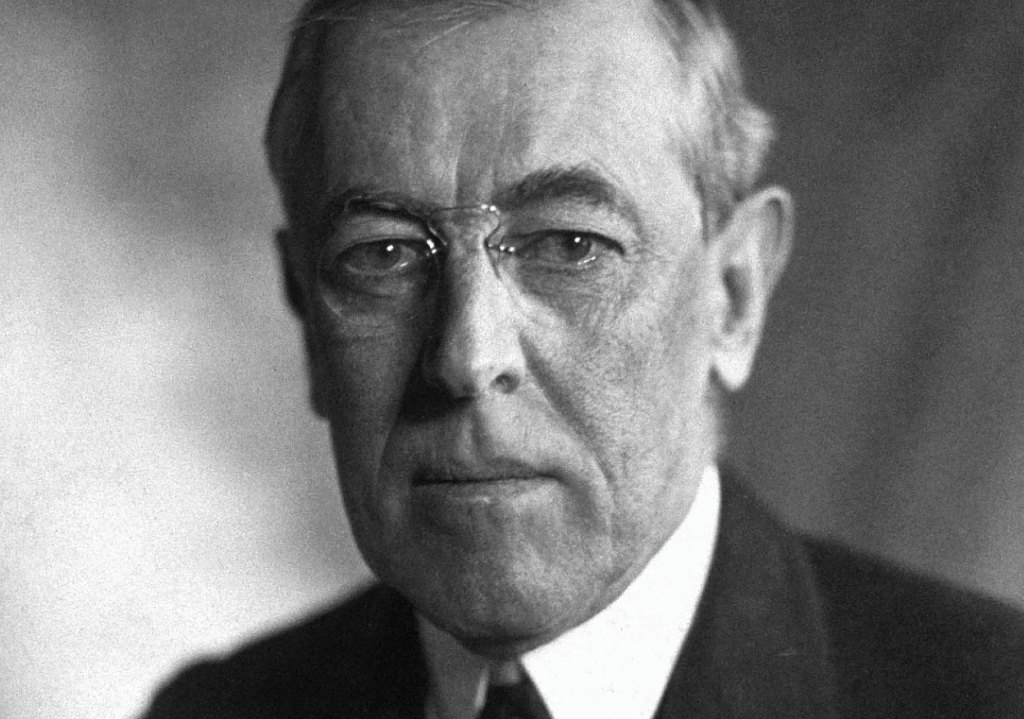Editor’s Note: TheGrio first published this article on July 4. For Presidents’ Day 2023, we are resurfacing this content to recap which occupants of the White House used their station and authority to advance agendas harmful to Black Americans.
Segregation is not a humiliation but a benefit, and ought to be so regarded by you gentlemen. If your organization goes out and tells the colored people of the country that it is a humiliation, they will so regard it … The only harm that will come will be if you cause them to think it is a humiliation.” – Woodrow Wilson
Wilson spoke those words during an exchange at the White House with a delegation of Black citizens led by journalist William Monroe Trotter, who balked at Wilson’s approval of resegregating civil service employees, according to the book ”Presidents and Black America: A Documentary History,” which authors Stephen A. Jones and Eric Freedman wrote about for the website The Conversation.
Since America gained its independence in 1776, the nation has seen 46 men serve as president. These men have taken the country from its founding years to freeing enslaved people, to passing, finally, civil rights legislation, and to removing some institutionalized barriers to opportunity.

Along the way, some presidents have been openly hostile to Black people. Some have used the federal government’s might to help deny Black people freedom and equality.
Dr. Robert C. Smith, professor emeritus at San Francisco State University, is a renowned expert on African American politics who has written 10 books and scores of papers.
He shared his thoughts, in no particular order, on the worst presidents for Black people. You can find the list of best presidents here. The opinions below are Smith’s words, and the conversation has been edited for brevity and clarity.
Andrew Johnson: 17th president, 1865-1869
He didn’t stand in the way when states implemented the “Black Codes” that limited the rights of people recently freed from enslavement.
Johnson was an overt white supremacist and racist. He said openly in his state papers that Africans were inferior people and therefore should be held in a subordinate position to white people. There should not be equality between the races. He said to the southern white people, ‘we’re gonna leave you alone, and you can do with your emancipated slaves whatever you wish.’ And of course, what they wished was to keep Black people in as much slavery as the 13th Amendment (which outlawed slavery) permitted. And so states, under Johnson’s watch, instituted the Black Codes, slavery by another name. (The Black Codes were enacted by Southern states during Reconstruction to limit the rights of Black people).

Johnson vetoed the first Civil Rights Act passed by Congress in 1875; Congress overrode his veto. When Congress passed civil rights legislation, he refused to enforce it and violated his constitutional oath to see to it that the laws were executed faithfully. That was one of the reasons Congress impeached him, and he came within one vote of being removed from office.
Ronald Reagan: 40th president, 1981-1989
He used conservatism as an excuse not to use the federal government to improve the lives of Black people.
Reagan’s racism emanated not from racial animus per se but from his rigid adherence to this conservative ideology, the notion of limited government and the belief that government should not try to correct social conditions.
We are still living, to an extent, with Reagan, particularly in the Republican Party, but then the general public. There is still this sense that the government should not do anything to address the problems of poverty, especially in Black America. That’s one of the legacies of Ronald Regan.
Rutherford B. Hayes: 19th president, 1877-1881
He agreed to withdraw federal troops from the South to secure his presidency. That action resulted in Ku Klux Klan terrorism against Black people and white supremacy in the South.
Hayes, a Civil War general, was a reasonably liberal politician on race. But he agreed, in 1877, to the withdrawal of the last of the federal troops in the Southern states who protected the rights of the newly emancipated persons. This led to Ku Klux Klan terrorism and a concerted effort to reduce Black people to a near-slavery capacity in terms of labor and taking away their right to vote.
Woodrow Wilson: 28th president, 1913-1921
He instituted segregation in the federal government’s civil service jobs, taking away valuable employment opportunities for Black people.
Wilson was a white supremacist and a racist. He believed Black people should be held in subordinate positions to whites. Prior to his presidency, Black people and white people in Civil Service in Washington worked in an integrated setting. He came in and imposed complete segregation. He set into motion a process that eventually led to a fairly significant decline in the number of Black people in civil service employment.
Donald Trump: 45th president, 2017-2021
He has institutionalized white nationalism into the Republican Party and, to some extent, the country, which puts Black people at risk.

Trump institutionalized in the Republican Party, and to some extent the nation, white Christian nationalism. White nationalist politics claim the resources are going more to Black people than they are to white people. His supporters are particularly concerned, of course, about immigration, which Trump made the theme of this campaign. He said to get rid of the Haitians, get rid of the Salvadoreans, and try to find some Norwegians to immigrate to America. Implicitly, he’s setting up this notion of a racist hierarchy, between white people and then the rest of the world.
TheGrio is FREE on your TV via Apple TV, Amazon Fire, Roku and Android TV. Also, please download theGrio mobile apps today!

